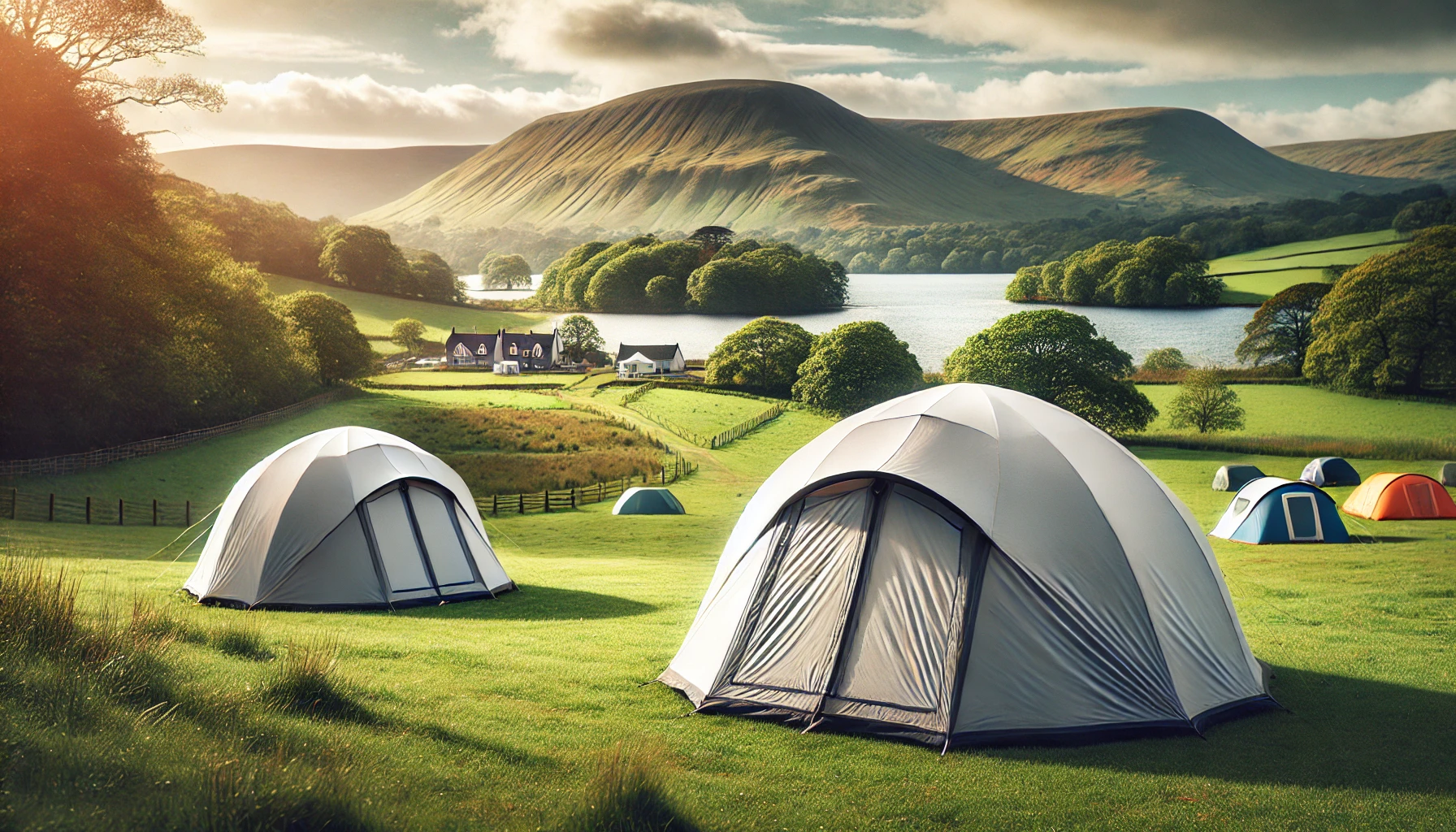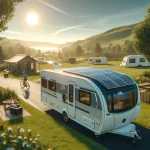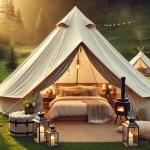When planning your next UK camping adventure, one of the most important decisions you’ll make is choosing the right tent. The UK’s diverse landscapes, unpredictable weather, and varying terrain mean that the type of tent you select can significantly impact your comfort and safety. With so many options available, how do you decide which tent is right for you? This guide will walk you through the different types of tents available, helping you make an informed decision tailored to your needs.
1. Dome Tents: The All-Rounder
Best For: Weekend campers, families, first-time campers
Dome tents are one of the most popular choices for UK campers due to their versatility, ease of setup, and stability. They feature two or more flexible poles that cross in the center, creating a rounded, dome-like shape. This design makes them resilient in windy conditions, a common occurrence in the UK’s exposed camping spots.
Key Features:
- Stability: Dome tents are designed to withstand wind, making them ideal for camping in open spaces.
- Easy Setup: Most dome tents are straightforward to pitch, even for beginners.
- Spacious Interior: The dome shape allows for decent headroom and interior space, perfect for storing gear and moving around.
Considerations:
While dome tents are great for general use, they might not be the best choice for larger groups or extended stays, as they can be a bit cramped compared to other tent types.
2. Tunnel Tents: The Family Favourite
Best For: Families, group camping, long stays
Tunnel tents are a popular choice for family camping trips. They consist of a series of curved poles, forming a long, tunnel-like shape. These tents offer ample space, making them perfect for families or groups who need a bit of extra room.
Key Features:
- Ample Space: Tunnel tents often come with separate sleeping and living areas, offering comfort and privacy.
- Great Ventilation: With multiple doors and windows, tunnel tents provide excellent ventilation, which is crucial in the UK’s sometimes humid summer conditions.
- Ease of Access: The large entrance and spacious interior make moving in and out with kids and gear hassle-free.
Considerations:
Tunnel tents can be heavier and bulkier than other types, so they’re better suited for campsites where you don’t have to carry your tent far. Additionally, they may not perform as well in very windy conditions unless properly secured.
3. Geodesic and Semi-Geodesic Tents: The Adventurer’s Choice
Best For: Wild camping, mountaineering, extreme weather conditions
For the more adventurous camper, particularly those who enjoy wild camping in remote locations or tackling the UK’s rugged peaks, a geodesic or semi-geodesic tent is a must. These tents feature multiple poles that crisscross to create a stable, self-supporting structure.
Key Features:
- Superior Stability: Designed to withstand extreme weather, geodesic tents are perfect for camping in exposed, windy, or snowy conditions.
- Self-Supporting: Unlike tunnel or dome tents, these tents can stand without the need for pegs, making them ideal for pitching on rocky or hard ground.
- Compact and Lightweight: Despite their durability, many geodesic tents are relatively lightweight, making them easier to carry on long treks.
Considerations:
The enhanced stability and weather resistance of geodesic tents often come at a higher price. They can also be more complicated to pitch compared to simpler designs.
4. Inflatable Tents: The Modern Marvel
Best For: Families, festival-goers, glampers
Inflatable tents, also known as air tents, have revolutionized camping by eliminating the need for traditional poles. Instead, these tents use air-filled beams to create their structure, making setup quick and hassle-free.
Key Features:
- Quick Setup: Simply inflate the beams, and your tent is ready to go—ideal for those who want to spend more time relaxing and less time pitching.
- Spacious and Comfortable: Many inflatable tents are designed with comfort in mind, featuring multiple rooms, large windows, and high ceilings.
- Stable and Secure: Despite the lack of traditional poles, inflatable tents are surprisingly stable, even in windy conditions.
Considerations:
Inflatable tents tend to be heavier and bulkier when packed away, so they are best suited for car camping rather than trekking. They also tend to be more expensive than traditional tents.
5. Pop-Up Tents: The Festival Favourite
Best For: Festivals, short weekend trips, beginners
Pop-up tents are the ultimate in convenience, especially for festival-goers or those on a quick weekend getaway. These tents literally “pop up” into shape as soon as you take them out of their bag, making setup a breeze.
Key Features:
- Instant Setup: No poles, no hassle—just throw it in the air, and your tent is ready.
- Lightweight: Pop-up tents are generally lightweight and easy to carry, making them ideal for festivals and short trips.
- Affordable: These tents are often more affordable, making them a great option for beginners or occasional campers.
Considerations:
While convenient, pop-up tents often lack the durability and weather resistance needed for more serious camping. They’re best suited for mild weather and short stays.
6. Bell Tents: The Glamping Essential
Best For: Glamping, luxury camping, extended stays
Bell tents have become synonymous with glamping in the UK. These large, canvas tents offer a touch of luxury, with enough space to accommodate beds, furniture, and more.
Key Features:
- Spacious and Stylish: Bell tents offer a lot of space and a charming aesthetic, perfect for those looking to add a bit of luxury to their camping experience.
- Durable: Made from heavy-duty canvas, bell tents are built to last and perform well in a variety of weather conditions.
- Versatile: Many bell tents can be fitted with stoves or heaters, making them suitable for year-round camping.
Considerations:
Bell tents are heavy and bulky, requiring more time and effort to set up. They’re best suited for extended stays at a campsite rather than quick weekend trips.
Conclusion
Choosing the right tent for your UK adventure comes down to understanding your specific needs and the conditions you’ll face. Whether you’re a family looking for space, an adventurer braving the elements, or a festival-goer seeking convenience, there’s a tent type out there that’s perfect for you. By considering the features and benefits of each type, you’ll be well on your way to finding the ideal shelter for your next outdoor experience.
Happy camping!


